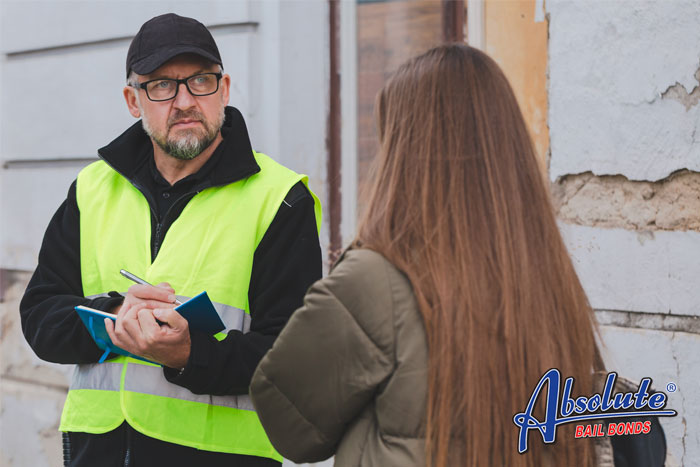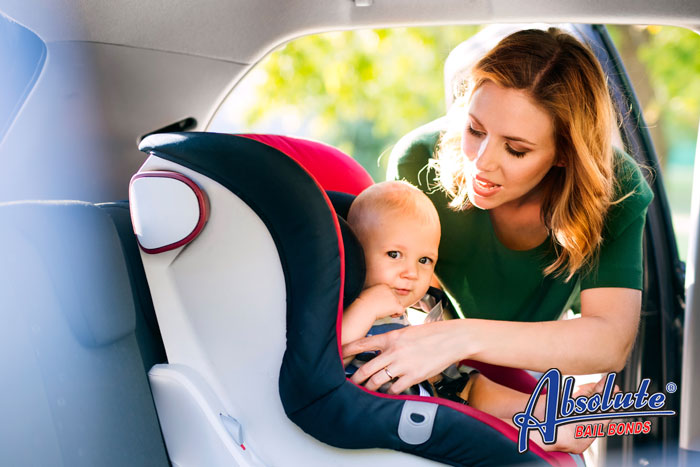
Legal Responsibilities Attached to Witnessing a Crime in California
As you were walking your dog, you witnessed a hit and run. No one was hurt, but the fleeing car did do quite a bit of property damage. Suddenly you’re in the middle of a moral dilemma. Should you report the crime or should you pretend it didn’t happen and simply go home.
While no one can tell you what you should do, you should know that if the police find out that you witnessed the hit and run, or any other type of crime, you should report the incident. There are some crimes, such as child abuse, where failing to report the situation could land you in hot legal water.
Why You Should Report the Crime
Witnessing a crime triggers a strange surge of emotions. On the one hand, you know you have a moral responsibility to tell the authorities what happened. On the other hand, you can’t stop thinking that doing so will make you some sort of tattletale, a title you worked hard to avoid while you were in grade school.
What you have to understand that telling the police about a hit and run driver, or blowing the whistle on white-collar crime is not the same thing as telling your teacher that your best friend is jumping in mud puddles and splashing water on everyone.
When it comes to crime, no matter how small the issue might be, you have a moral obligation to report it.
How Much Time do you Have to Report the Crime?
When it comes to reporting a crime, sooner is better than later. Reporting the crime right away prevents someone else from going to the police and telling that you were on the scene and have failed to report the incident. The other advantage of reporting the crime as quickly as possible is that your memory of the incident will be clear, making you a credible witness.
What Happens if You Don’t Report a Crime?
There are some crimes, particularly those that involve children, that you’re legally required to report. Failing to report a crime that involves a child comes with serious legal ramifications. If you know a child is being abused or neglected you are required to report the crime to a child welfare professional or a police officer. You have to report the situation within 36 hours of witnessing the event.
The maximum penalty for failing to report a child is a $1,000 fine and a six-month jail sentence.

Unwritten Camping Rules to Remember
Camping is wonderful. Camping provides you with the means to connect to the earth and nature while also bonding with family and friends. The best thing about camping is all the great memories you collect during each camping trip.
The next time you’re about to hit the woods for an epic camping trip, keep these unwritten camping rules in mind.
Leave Your Site Better than you Found It
It doesn’t matter if you’re a slob at home when you’re camping, you need to turn into a neat freak. Commit yourself to keeping each place you pitch your camp cleaner than when you found it. Not only does this ensure that the next set of campers who come along will also have a nice place to set up camp, but it also proves that you are environmentally aware.
Keeping the campsites cleaner than how you found it includes cleaning up after your pets.
Don’t Leave the Fire Burning
California has had more than its fair share of fires. The last thing you want is to be the cause of the next wildfire. Making sure you douse the fire whenever you’re not sitting in front of is important. It’s a good idea to throw some water over the fire pit so that there’s no risk of a stray spark setting off a big blaze.
When you’re camping, take a little while to study your campsite. If the area is full of dry leaves, underbrush, and grass, hold off on starting a fire. If a spark jumps out of your fire pit and sets some of the dry matter on fire, the entire campsite will go up in flames before you have time to spring into action.
The Camp Bathroom isn’t your Kitchen
A surprising number of people who use campgrounds treat the campground’s bathroom like it’s their kitchen. They actually use the sink to wash their dishes. If you’ve never done this, great! If you have, make sure you don’t do it again. Not only is the practice a health hazard, but it can also play havoc on the campgrounds plumbing system and it’s rude to other guests.
Be Respectful While Camping
You’re on a great camping experience and want to have a good time, but that doesn’t mean you should leave your good manners at home. If you’re using a campground, you need to be respectful.
That includes things like:
- Not walking across someone else’s campsite
- Staying calm and quiet during the night
- Using low lights
- Keeping your pets and your kids under control
Following these simple unwritten rules of camping will increase the amount of enjoyment you get on your next camping adventure.

California’s Regulations Regarding Car Seats
All parents know that infants should be contained in a car seat, however not all parents know what California’s laws are regarding car seats.
Infants and Car Seats
Any child that is two or under must be confined to a rear-facing car seat while they are in a vehicle. Failing to have your child properly secured in a car seat will result in a $500 fine and a point getting added to your driving record. Don’t assume that just because your child has passed their second birthday that it’s time to change their car seat. The law also states that the child needs to be at least 40 inches tall and or weigh at least 40 pounds before they graduate to a different type of car seat.
Car Seat for Children who are Between the Ages of 2 and 8
If your child has already celebrated their second birthday and also meets the height and weight requirements, you’re allowed to replace their rear-facing car seat for a front-facing model. California lawmakers won’t prevent you from making this transition, but they do want you to understand that the rear-facing car seats are considered 500% safer than the front-facing models.
The car seat should always be secured in the back seat unless there is a reason the back seat is considered unsafe or isn’t designed in a way that allows the car seat to be safely installed in space.
Transitioning from Car Seat to Booster Seat
There is no set age when your child can officially move out of their car seat and into a booster seat. California’s child car seat laws state that the transition can happen once your child has reached a height or weight that exceeds the limits of your front-facing car seat. In most cases, the child will be about 65 pounds. There are no requirements about the type of booster seat your child uses, though it does have to be a seat that can be safely installed in the car.
Your child is allowed to move out of the booster seat when they turn 8 or when they reach a height of 4’9”.
Make Sure the Car Seat is Properly Installed
An improperly installed car seat is nearly as dangerous as driving around without your child in a car seat. Don’t assume that you know what you’re doing. Whenever you get a new car seat or a new car, it’s in your best interest to take the entire setup to your nearest police station. One of the officers will happily examine the car seat and make sure it’s properly installed.
Rather than moving the car seat from one car to another, you should keep a car seat in each vehicle. Not taking the seat in and out of different vehicles not only extends the life of the car seat but also reduces the risk of it not getting installed properly.
You owe it to your child to stay abreast of the latest California laws pertaining to car seats.

Will the Police Cite me for Not Wearing a Face Mask?
Covid-19 has brought about many changes. One of the newest additions to our lives is the wearing of face masks while in public.
Why are Face Masks Required in California
The hope is that wearing masks will slow the spread of the Covid-19 virus. The idea is that the masks keep the droplets contained to a single person. California lawmakers are urging residents to wear a mask whenever they’re shopping.
The problem is that there is conflicting information regarding the effectiveness of face masks. The result of the conflict is that while some people happily wear a mask each time they go out, others refuse to wear them.
The debate over wearing a masks has led many people to wonder if the police will issue citations to those who don’t wear a mask while shopping.
When are Face Masks Required
According to the State of California, masks should be worn whenever:
- You’re in an indoor public area
- You’re obtaining medical services, such as dental appointments and donating blood
- You’re using some form of public transportation, in a taxi, or utilizing a rideshare program
- When you’re in an area that is heavily used by multiple people
- Interacting directly with people
Many California cities and counties have created additional laws that pertain to face masks.
Will the Police Cite you for Not Wearing a Mask While Shopping
People who are good about wearing a mask whenever they’re out and about don’t worry about police citations while they’re shopping. Those who don’t can’t stop wondering if they can issue a ticket for failing to cover the face. There were some counties that took a much firmer stance. Not only did they tell their local officers that they should issue citations to anyone who wasn’t wearing a mask, but they also attached a fine to the citation. Riverside County was one such place that decided that failing to wear a mask while shopping could result in a $1,000 fine.
The sheer number of people who were neglecting to wear a mask while shopping combined with reports of people getting verbally attacked when they asked someone to put a mask on has resulted in Governor Gavin Newsom has tightened up on the issue of masks.
He recently issued this statement.
“Simply put, we are seeing too many people with faces uncovered — putting at risk the real progress we have made in fighting the disease. California’s strategy to restart the economy and get people back to work will only be successful if people act safely and follow health recommendations. That means wearing a face covering, washing your hands, and practicing physical distancing.”-Los Angeles Times
Newson’s recent changes. At this point, it’s likely that the police won’t hand out many citations to those who fail to wear a mask while shopping, they feel that their services are needed elsewhere. That could change if the daily number of new COVID-19 cases starts to rapidly increase.

